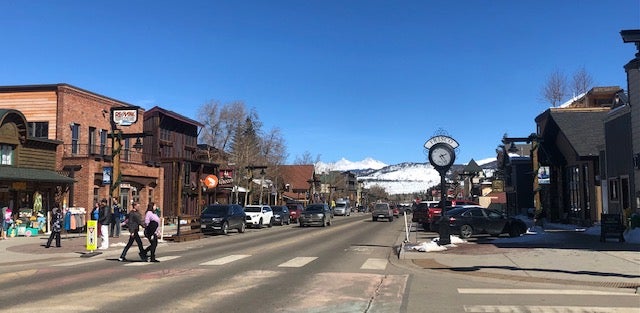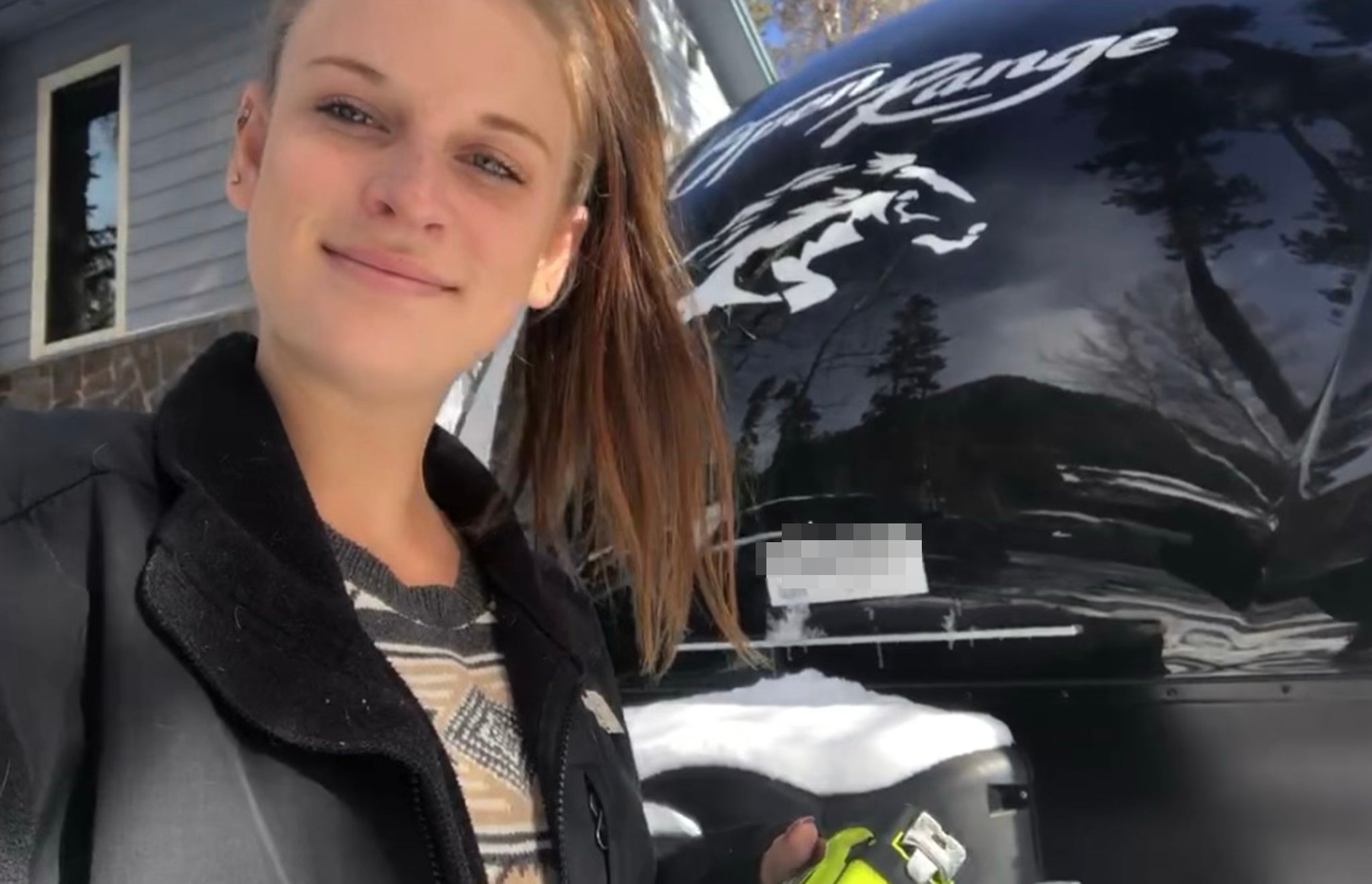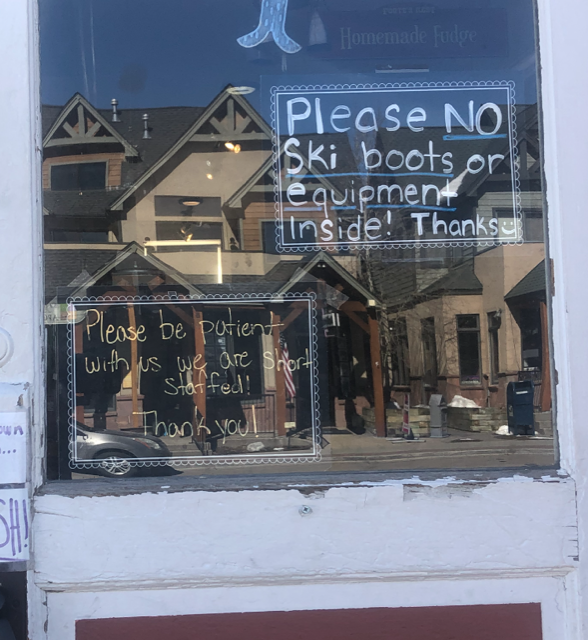
A gas station in picturesque Frisco, Colorado is closing hours earlier than it did previously. Further down the main street, a candy store has a sign in the window pleading for patience because it’s short of staff.
Twenty minutes away in Keystone, a major coffee franchise was rarely open last summer. And in nearby Breckenridge, a popular restaurant on the biggest street was closed last month on a random Wednesday as throngs of tourists clamoured for food, drink and fun.
Summit County, in the heart of Colorado’s ski country, is one of the most visited counties in America. Everyone wants to holiday, live or work here, just like most of the mountain towns in Colorado – where the daytime weather is mild, the powder on the slopes is fantastic and small-town vibes attract some of the biggest names on the planet. Goldie Hawn and Kurt Russell, for example, raised their children in Snowmass, right outside of Aspen in Pitkin County.
The Aspen region is home to Billionaire Mountain, where members of the Bezos and Dell families famously bought properties for tens of millions; Breckenridge, in Summit, and Vail, in Eagle County, are two of America’s busiest ski resorts.
But while the rich are snapping up more and more properties and prices soar, the workers who serve them are getting priced out – and there’s nowhere else to go. So scores of locals have either left or been forced to live in mobile accommodation.
A variety of factors are making it nearly impossible to live and work not just in Summit County but in mountain towns all over Colorado. Soaring housing prices – fuelled partly by the pandemic – and government rental restrictions are pushing out locals. Treacherous road conditions make it hard to commute from other towns over mountain passes that may or may not be open, depending on the snow and ice.
“I found so many people having to live out of their cars just so they could get to their work on time – because if it’s snowing, you’re expected to be there and open up, but you can’t get there,” says Claire Murphy, 52, who moved from Australia to Frisco in 2016 to marry an ex-boyfriend she’d reconnected with.
The relationship didn’t work out, leaving the Aussie teacher and her dog, Murray, at a loss. Ms Murphy currently makes $23 an hour at her job at and had budgeted $2,000 for a home – more expensive than many in Denver, the state’s biggest city – but still couldn’t find a place.
“It’s easier to live where you work because of the weather, but then it was just impossible,” she tells The Independent, standing in the liquor store where she works and now lives out back.
“The only thing I could do was to buy that camper, knowing that my boss was allowing me to park it on the property. If he didn’t own this building, I wouldn’t have that space out the back there. Before I bought the camper, I lived in the storeroom for three years.”
She still sleeps there when it gets too cold, pointing out her mattress on the floor.
“To shower, I have buckets of water,” she says, adding: “I get to have one shower a month because I’ll go to my friend’s and I’ll bite the bullet and I’ll swallow my pride.
“I’m an independent lady.”

A few miles away, Gillian Cullen, 25, lives in a “tow-behind trailer RV situation” in a rented parking space with her boyfriend and dog. A Frisco restaurant worker who’s also training to be an EMT, she eventually admitted defeat and became more creative after an unsuccessful housing hunt.
“We had a pretty flexible budget, too, and we were looking for months,” she tells The Independent. “We literally just couldn’t find anything. There would just be no replies ... it was absolutely insane.”
They considered trying to find another town and commute, but, as pointed out by Ms Murphy, that brings with it logistical issues.
“Already with the prices in Summit County, I can’t really afford to miss work – so if I were to move somewhere [and a] big blizzard prevented me from getting there, that’s not really an option.
“There’s always accidents, there’s always road closures. It’s a lot of gas,” Ms Cullen says.
She and her boyfriend bought their new “home” for about $30,000; they’re making $350 monthly payments on that as well as $500 a month to park it in a local’s driveway.
“There’s still propane; we had to fashion a skirt to insulate it; there are things we had to buy on top of it,” she says. “It’s starting to not be cost effective to do this living situation.”
She adds: “I love it; it’s cute, it’s quaint, but at the same time, when it gets to the negative temperatures, no amount of insulation can stop some of your water from freezing.”

According to the 2021 Mountain Migration Report from the Northwest Colorado Council of Governments, “the ability for people working in these mountain towns to live in the same communities as they work took a big hit from the pandemic. Housing availability and affordability, which were by no means new problems, became significantly worse.”
The report lists a variety of factors: “Home prices reached record highs; Rents increased 20% to 40% in one year; Availability of homes for rent and purchase plummeted to critical levels in many communities; Newcomers with significantly higher incomes than year-round residents more often won the competition for scarce housing units.”
It’s something that everyone is talking about, all the time; this week in Breckenridge, local radio news was addressing proposed housing legislation as tourists shopped in a main street toy store. Most businesses have been affected; over in Frisco, Becky Foote, whose family owns the local sweet shop, has seen it get harder and harder to hire experienced staff.
“We have employed mostly high school kids, college kids in summer, but getting an adult that wants to work in here, the hours that we need, is difficult,” she tells The Independent. “Because most of the adults have to have two or three jobs to make a living up here – and they’re not available always [for] the hours that we need.”
The housing and workforce shortages are plaguing mountain towns all over Colorado. In Aspen, retail manager Skyelar Hart told the local paper right before ski season that she was struggling to find staff.

“Right now, it’s mostly high school students,” she said in October. “And we need adults and we need people who can work in the morning and day and Monday through Friday.”
The situation hadn’t improved this week when she was contacted by The Independent; sounding at her wits’ end, she said she was too swamped to talk during one of the busiest weeks of the year – with only two staff members to help her out.
Three hours away in Steamboat Springs, various enterprises have also started to get resourceful in order to house and attract employees. Steamboat Ski Resorts has taken on a master lease of a hotel to house workers because the unaffordable accommodations in the postcard-perfect town were “definitely impactful for us,” communications director Loryn Duke tells The Independent.
“It was an issue,” she says. “It was a reason people couldn’t accept jobs.”
Employees in dorm-style living, of course, tend to skew younger, but older and more experienced workers in the Colorado mountains – like the middle class in so many parts of the country – are often left adrift.
“That’s the difficulty in any resort community,” Ms Duke says. “Young families or even young employers who are career-driven are year-round. They want to put down roots in these communities, and it’s very difficult, because it’s hard for them to have enough money to purchase a house. It’s hard for them to find rentals.”
Some businesses in Steamboat have been forced to close on Mondays or Tuesdays or curtail services in other ways. And again, it’s happening all over.

The expansion of resorts and time shares, in addition to the house prices, has also contributed to the housing and pricing problem, says Tom Day, managing broker of Day Palazola Group Real Estate and a candidate for Breckenridge Town Council.
“Their people get paid crap, and on top of it, they do little to nothing to have housing for them – which if they did would generate them rental income in perpetuity,” he tells The Independent of major resort employers. “So it’s crazy that this is going on.”
He says he hears from workers: “They told me I’d be able to find a place to live when I got here, and I can’t find anything – and I’m sleeping on somebody’s couch.”
What’s also infuriating for locals is the fact that, in so many mountain towns, hundreds to thousands of properties are unoccupied as people struggle to find places to live. Second homes lie empty for most of the year. Local rental regulations often prevent residents from renting out their own units, too.
“The town of Breckenridge and Summit County have put massive restrictions on what we call ADUs – auxiliary dwelling units,” says Mr Day, who’s lived in Breckenridge for 35 years. “So if you have a house – and I have a four-bedroom house, my downstairs is a separate unit that I could rent out to somebody – but the town and the county has restricted these so much. There would be several hundred of those units available, too, if they would relax their restrictions.”
He adds: “If we restrict the short-term rentals, which is what they’re doing now, that isn’t going to do jack for long-term housing – because people own $1m, $2m, $3m homes, they’re not going to rent their property to a snowboard instructor or a lift operator or a bus driver.”
The town is, however, attempting to remedy the situation. Flyers were distributed recently to residents claiming that officials were “working toward the goal of 47% of local employees living in Breckenridge.”
Under the heading “HELP IS ON THE WAY,” it continues: “More than $320m dollars will be invested in local workforce housing in the next five years (by 2027) – that’s more than 900 new units for local employees!”
Steve Fisher, a former professional snowboarder who moved to Breckenridge in the early 2000s, is now the 2022 Board President of the Summit Association of Realtors.
“It’s a never-ending list of factors that ... all the mountain towns are kind of dealing with at the moment,” he tells The Independent.

When Mr Fisher, 39, first moved to the town, “the type of local was largely seasonal, kind of either between college and real life work or between high school and college – a lot of seasonal employment stuff,” he says. “I think a lot of that has changed with remote work, where a lot of people who are living here and moving here now can afford property – so ... it all comes down to this intense demand and not enough inventory and availability for the amount of people that want to live here full-time.”
Many resort communities, he says, were built 50 years ago with no foresight “as to what we’re dealing with now.”
“A lot of the housing is actually meant and purposed for kind of short-term tourism by way of the condo complexes and everything like that,” he says. “Breckenridge doesn’t have hotels the way that a lot of other areas and resorts have, and not only that, but Airbnb and Vrbo have completely changed” the market.
In addition to housing, there are also issues of infrastructure like roads and commutes.
“I think geography makes it difficult, because obviously there are mountain passes, [but] you can’t make tunnels everywhere,” he says, adding later: “Metropolitan areas obviously don’t have as many hurdles.”
“I think the pandemic really put a lot of fear into people, and especially ... people in high-dense metropolitan areas that may have been living in just a two-bed apartment in a high-rise [who] totally lost their s***: ‘We need to get out, we need to be in clean air, mountains, we don’t want to be confined to an 800 square foot apartment’.”
Funnily enough, it’s now hard to find even one of those for a reasonable price for people who live in the resort towns.
Mr Fisher, though – who says he’s seen more traffic in Breckenridge than he has in 20 years – believes that there will be a “pullback” and an “exodus” from city dwellers who tried to switch to the mountains.
“I think the dream is: We’re going to move to the mountains and we’re going to retire to the mountains,” he tells The Independent. “Mountain life is hard, especially if you’re not used to a small mountain town compared to somewhere like Kansas City or somewhere like Minneapolis.”
The current exodus, however, is not the outsiders or the rich. It’s the people who’ve formed the lifeblood of communities, providing services that range from ski patrols to food supply to gas.
“I’m on a good wage here, but I still couldn’t save that money and eat,” Ms Murphy tells The Independent. “I was just thinking about it last night, just how many people” have left.
These were “40-year-old, skilled people,” she says. “A couple went to Golden [Colorado], Illinois, places like that.”
Ms Cullen, like everyone else, has watched more and more friends being forced to move out of the mountains recently.
“I think people, if they can’t randomly get super lucky, they’re leaving,” she says.







